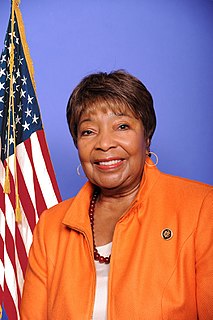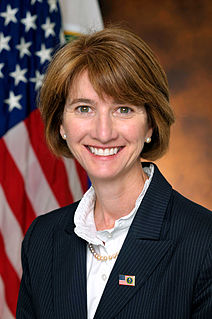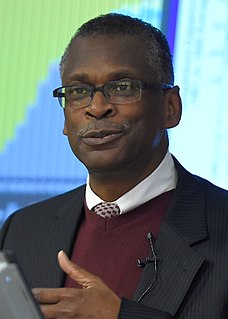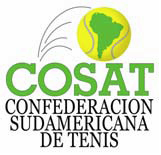
Technology is the collection of techniques, skills, methods, and processes used in the production of goods or services or in the accomplishment of objectives, such as scientific investigation. Technology can be the knowledge of techniques, processes, and the like, or it can be embedded in machines to allow for operation without detailed knowledge of their workings. Systems applying technology by taking an input, changing it according to the system's use, and then producing an outcome are referred to as technology systems or technological systems.

Modern flat Earth societies are organizations that promote the misconception that the Earth is flat rather than a globe. Such groups date from the middle of the 20th century; some adherents are serious and some are not. Those who are serious are often motivated by pseudoscience or Biblical literalism.
The Committee on Science, Space and Technology is a committee of the United States House of Representatives. It has jurisdiction over non-defense federal scientific research and development. More specifically, the committee has complete jurisdiction over the following federal agencies: NASA, NSF, NIST, and the OSTP. The Committee also has authority over R&D activities at the Department of Energy, the EPA, FAA, NOAA, the DOT, the NWS, the DHS and the U.S. Fire Administration.

Eddie Bernice Johnson is a politician from the state of Texas, currently representing Texas's 30th congressional district in the United States House of Representatives. Serving as a representative since 1993, when she was the first registered nurse elected to Congress. At the swearing in of the 116th United States Congress, she will become Dean of the Texas congressional delegation.
Johnson & Wales University (JWU) is a private career-oriented university with its main campus in Providence, Rhode Island. Founded as a business school in 1914 by Gertrude I. Johnson and Mary T. Wales, JWU currently has 15,063 students enrolled in business, arts & sciences, culinary arts, education, engineering, equine management, hospitality, and engineering technology programs across its campuses.

IBM Research - Almaden is in Almaden Valley, San Jose, California, and is one of IBM's twelve worldwide research labs that form IBM Research. Its scientists perform basic and applied research in computer science, services, storage systems, physical sciences, and materials science and technology. The center opened in 1986, and continues the research started in San Jose more than fifty years ago. Nearly all of Almaden’s approximately 500 research employees are in technical functions and more than half of these hold Ph.D.s. The lab is home to ten IBM Fellows, ten IBM Distinguished Engineers, nine IBM Master Inventors and seventeen members of the IBM Academy of Technology.

Robert Samuel Langer, Jr. FREng is an American chemical engineer, scientist, entrepreneur, inventor and one of the 10 Institute Professors at the Massachusetts Institute of Technology.

Kristina M. Johnson is an American business executive, engineer, academic, and former government official, and 13th Chancellor of the State University of New York. She has been a leader in the development of optoelectronic processing systems, 3-D imaging, and color-management systems.

Lonnie George Johnson is an American inventor and engineer who holds more than 120 patents. He is the inventor of the Super Soaker water gun, which has been among the world's bestselling toys every year since its release. Johnson's father was a World War II veteran and his mother worked as a nurse's aide and they lived in Mobile, Alabama. As a child, Johnson was very innovative and curious, some of this curiosity coming at the expense of his family's possessions. He reverse engineered his sister's doll to understand how the eyes closed. He also almost burned down his own house while making rocket fuel. In addition, he built his own go-cart out of a lawnmower engine and attached to scraps he found in the junkyard to it.
In his teenage years, Johnson attended the all-black Williamson High School in Mobile. He drew much of his inspiration from George Washington Carver. In 1968, Johnson represented his high school in the Alabama science fair. He was the only black student in the fair at a time when African Americans did not have much presence in science. He created a robot he named "Linex", which was a compressed-air powered robot and took home first prize. Johnson then went on to attend college at Tuskegee University on a math scholarship. When he finished, he earned a B.S. in Mechanical Engineering and a Master's Degree in Nuclear Engineering from Tuskegee University.

Packaging engineering, also package engineering, packaging technology and packaging science, is a broad topic ranging from design conceptualization to product placement. All steps along the manufacturing process, and more, must be taken into account in the design of the package for any given product. Package engineering is an interdisciplinary field integrating science, engineering, technology and management to protect and identify products for distribution, storage, sale, and use. It encompasses the process of design, evaluation, and production of packages. It is a system integral to the value chain that impacts product quality, user satisfaction, distribution efficiencies, and safety. includes industry-specific aspects of industrial engineering, marketing, materials science, industrial design and logistics. Packaging engineers must interact with research and development, manufacturing, marketing, graphic design, regulatory, purchasing, planning and so on. The package must sell and protect the product, while maintaining an efficient, cost-effective process cycle.

Ray O. Johnson, an American executive focused on business, innovation, and diversity, is the former Senior Vice President and Chief Technology Officer of the Lockheed Martin Corporation. Johnson guided the Corporation’s technology vision and provided corporate leadership in the strategic areas of technology, engineering, production operations, supply chain, program management, and sustainment, which included more than 72,000 people working on more than 4,000 programs that provided some of the nation’s most vital security systems. Johnson has a proven track record in managing large P&L organizations, developing and executing growth and technology strategies, and achieving operational excellence in diverse business environments.

Katherine Coleman Goble Johnson is an African-American mathematician whose calculations of orbital mechanics as a NASA employee were critical to the success of the first and subsequent U.S. manned spaceflights. During her 35-year career at NASA and its predecessor, she earned a reputation for mastering complex manual calculations and helped the space agency pioneer the use of computers to perform the tasks.

Platinum Metals Review, renamed in 2014 as Johnson Matthey Technology Review, is a quarterly, peer-reviewed scientific journal publishing reports on scientific research on the platinum group metals and related industrial developments.
Feminist technoscience is a transdisciplinary branch of science studies which emerged from decades of feminist critique on the way gender and other identity markers are entangled in the combined fields of science and technology. The term technoscience, especially in regard to the field of feminist technoscience studies seeks to remove the distinction between scientific research and development with applied applications of technology while assuming science is entwined with the common interests of society. As a result, science is suggested to be held to the same level of political and ethical accountability as the technologies which develop from it. Feminist technoscience studies continue to develop new theories on how politics of gender and other identity markers are interconnected to resulting processes of technical change, and power relations of the globalized, material world.

The pharmaceutical industry in Switzerland directly and indirectly employs about 135,000 people. It contributes to 5.7% of the gross domestic product of Switzerland and contributes to 30% of the country's exports.













